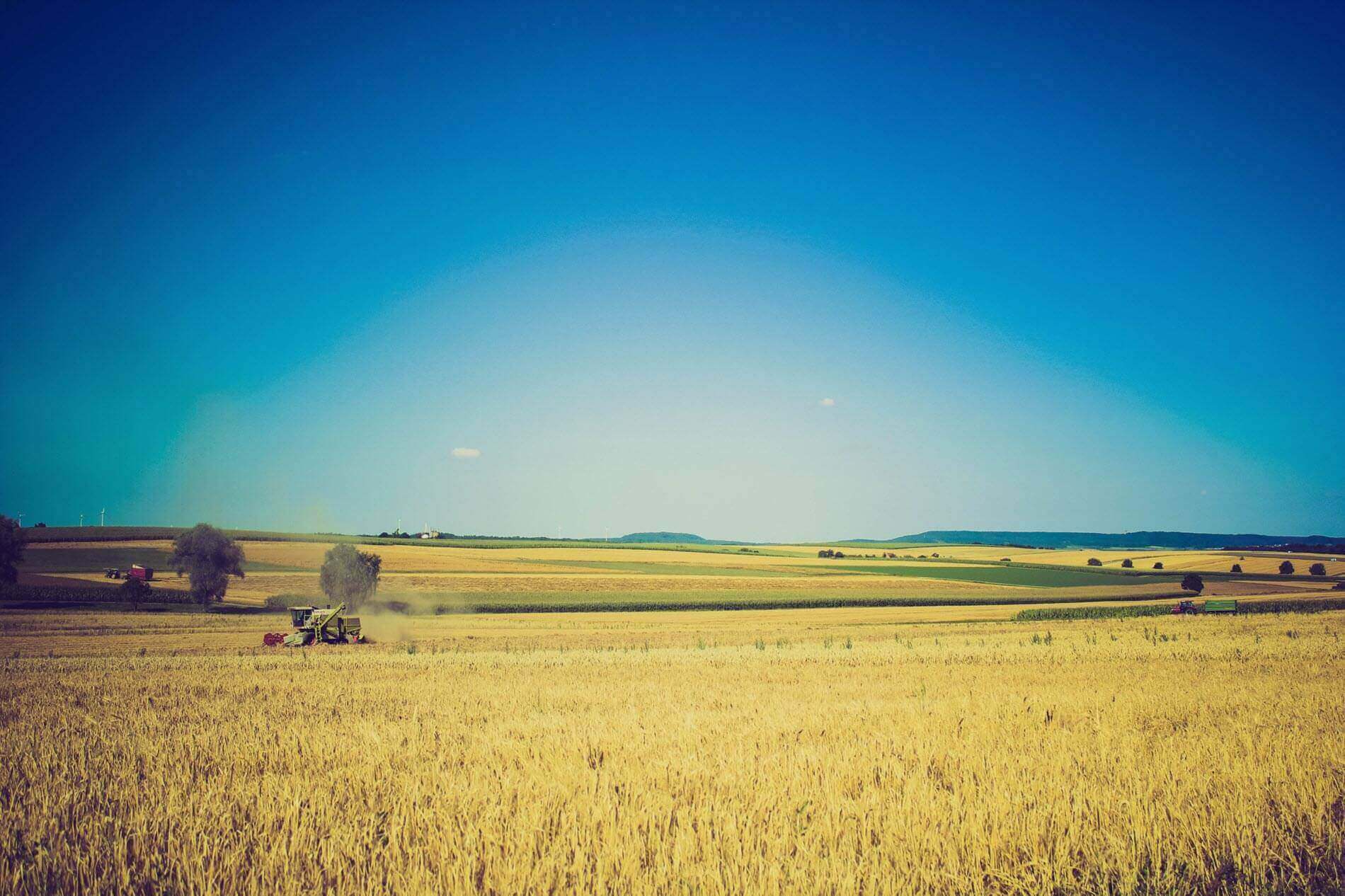The Judge Calls His Witnesses:
Heaven and Earth
A Sermon by the
Rev. S. Randall Toms, Ph.D.
April 21, 2021
Hear, O heavens, and give ear, O earth: for the LORD hath spoken, I have nourished and brought up children, and they have rebelled against me. (Isaiah 1:2)
Like most prophets, Isaiah is called to preach to a disobedient and rebellious people. He has been called to proclaim the word of God to the people of Judah and Jerusalem who are terrified because of the threat of surrounding nations, especially Assyria. But the people fail to realize that they would have no reason to fear the invasion of foreign forces if they were not living in revolt against God. The reason these nations pose any threat at all is that Judah and Jerusalem are facing the judgment of God for their sins. Thus, the book of Isaiah begins with a description of the sinfulness of the people and a call to repentance.
In the second verse of this first chapter, it is as though God is convening a court where the nation of Judah will be put on trial. In order to testify to their guilt, God calls heaven and earth to be his witnesses: “Hear, O heavens, and give ear, O earth: for the LORD hath spoken, I have nourished and brought up children, and they have rebelled against me.” Certainly, God could have called many witnesses to testify as to the guilt of his people. He could have called the remnant of godly people still living in obedience to God at the time of the writing of this prophecy. He could have even called the surrounding nations, for they knew of the hypocrisy of the people of Israel and Judah. But instead, God calls heaven and earth to witness against his people. As I preach this message, let the words “heaven and earth” be in the forefront of your minds. To understand why God calls heaven and earth as witnesses, we need to go back to the book of Deuteronomy.
In Deuteronomy 4, Moses is preparing the people to enter the Promised Land. He reminds them of how God came down and gave them his commandments at Horeb. He especially emphasizes his commandments that he gave them concerning idolatry—making graven images and serving them. He reminds them that they had entered into covenant with God, and that covenant stipulated that they would not worship idols. The people of Israel had committed themselves to live in obedience to those commandments. Moses warns them that if they fall into this sin of idolatry, they will find that God is a jealous God who will not share the love of his people with any other god. They must love Him and Him alone. If they forget these commandments against idolatry, God will reveal Himself to them as a consuming fire. They will experience the wrath of God for their disobedience. This wrath, this consuming fire, will take the form of being led into captivity by pagan nations. As Moses gives them this warning, he says in Deuteronomy 4:26-27, “I call heaven and earth to witness against you this day, that ye shall soon utterly perish from off the land whereunto ye go over Jordan to possess it; ye shall not prolong your days upon it, but shall utterly be destroyed. And the LORD shall scatter you among the nations, and ye shall be left few in number among the heathen, whither the LORD shall lead you” (Deut. 4:26-17). Notice, that Moses says, “I call heaven and earth to witness against you this day.” Now, we can understand why the Lord says through Isaiah, “Hear, O heavens, and give ear, O earth.” The day has come for God to call his witnesses to testify against his people.
Moses returns to this expression a little later in the book of Deuteronomy. Just before Moses dies and the people enter the land of Canaan, the Lord tells Moses, at the age of 120, to write a song to give to the people of Israel that they might remember the covenant that God had made with them and the punishments that would follow if they broke this covenant. Moses tells the people that God is going to be with them when they enter Canaan, and they will have victory over their enemies and take possession of the land. What good news! The people of God will be victorious. But then, the Lord tells Moses that after they have obtained this victory, the people of Israel will go whoring after other gods and fall into the sins of idolatry. What a terrible thing it must have been for Moses to hear, at the age of 120, just before he dies, that his people are going to turn away from the Lord!
But Moses is told to write this song from God about how the people of Israel would forsake the Lord and break his covenant. What a horrible song! Imagine singing a song from one generation to the next that predicts that one day the people of God will fall into gross sin and be punished for their wickedness. Yet, that is the song that Moses is given and that the people will be called upon to sing. The Lord tells Moses: “Now therefore write ye this song for you, and teach it the children of Israel: put it in their mouths, that this song may be a witness for me against the children of Israel” (Deut. 31:19). Even this song will be used to testify against the people of Israel.
Despite knowing this song and singing this song, the people of Israel will still fall into idolatry, and this song will testify against them that they had been warned about their future idolatry and punishment. In verse 21, the Lord says, “And it shall come to pass, when many evils and troubles are befallen them, that this song shall testify against them as a witness; for it shall not be forgotten out of the mouths of their seed: for I know their imagination which they go about, even now, before I have brought them into the land which I sware.” When the people rebel against God and face the threat of punishment, God will say, “Didn’t Moses teach you this song? Haven’t you sung this song as a people? And yet you still rebelled against me. This song testifies against you.” Then, in verse 22, we read, “Moses therefore wrote this song the same day, and taught it the children of Israel.” Moses taught them to sing this song about their future disobedience and punishment. Why put these terrible future events in the form of a song? Well, we all know that singing is a great memory device. We remember what we sing far better than what we simply read or hear. The lyrics of this song would be in the minds of the people, making it very difficult for them to ignore and forget. Then we are told that Moses takes the book of the law that he has written, and gives it to the Levites and tells them, “Take this book of the law, and put it in the side of the ark of the covenant of the LORD your God, that it may be there for a witness against thee” (Deut. 31:26). The future witnesses are being piled up. The Law can be called in as a witness against the people. The song of Moses can be called in as a witness against the people. Then Moses tells the Levites to gather the elders and the officers of the people together so that he can sing this song for them, and he says, “Gather unto me all the elders of your tribes, and your officers, that I may speak these words in their ears, and call heaven and earth to record against them” (31:28). Again, heaven and earth are called upon to testify against the people of Israel. Moses is about to sing this song that the Lord has given him, so we read in verse 30: “And Moses spake in the ears of all the congregation of Israel the words of this song, until they were ended.”
Now, why I am making such an issue about this song of Moses in connection with the first chapter of Isaiah? Listen carefully–the song of Moses begins: “Give ear, O ye heavens, and I will speak; and hear, O earth, the words of my mouth” (Deut. 32:1). I would have expected the Lord to say, “Hear, O Israel, the words of my mouth.” But no, the song begins, “Give ear, O ye heavens, and I will speak; and hear, O earth, the words of my mouth.” Why does he want heaven and earth to hear what he is about to say? He calls upon heaven and earth because one day he will call them to testify against his people. The song of Moses begins with words of praise for God–reminders of how God had formed them into a nation and how he had been so good to his people. But then he recalls how they had been rebellious from the beginning, how they will continue to forsake his laws, and how punishment will fall upon them. So, in the first chapter of Isaiah, the punishment threatened by the song of Moses is about to fall upon the people of God. Moses had called heaven and earth to hear what he had said to his people. And now, in the first chapter of Isaiah, the time has come for heaven and earth to testify against His people.
Why does he call heaven and earth to testify? There are some who think that “heaven” refers to angels and “earth” could refer to people. But it seems that that God has in mind the sky, the sun, the moon, the stars, and all the heavenly bodies, and the very ground upon which we walk. We know that the heavens and the earth are inanimate objects, but they are treated as though they were persons who are astonished by the sins of Israel and could actually give testimony against them.
Heaven and earth are good witnesses to call upon, because heaven and earth are always present as witnesses to everything we do. Every sin we commit is done under heaven, and every act of disobedience is done on the earth. The voice of the Lord had come to his people from heaven itself, and the word had come out of the fire that was on the earth. In Deuteronomy 4:36, we read, “Out of heaven he made thee to hear his voice, that he might instruct thee: and upon earth he shewed thee his great fire; and thou heardest his words out of the midst of the fire” (Deut. 4:36). God spoke from heaven, and he spoke on earth. Heaven and earth can testify that God had warned his people. Zophar, in the book of Job, describes heaven and earth as witnesses, “The heaven shall reveal his iniquity; and the earth shall rise up against him” (Job 20:27).
In one of his sermons from Deuteronomy, John Calvin points out that heaven and earth can be called against us as witnesses because we have even abused heaven and earth to sin against God. We have used the light of the sun so that we might better see how to commit acts of evil. We have used the fruits of God’s good earth and turned them into instruments of sin. What terrible testimony heaven and earth could give against us! We have taken the blessings of heaven and the earth and used those blessings only to revolt against our Creator and the Creator of the heavens and earth. This sin was committed by the people of Israel who even made gods of the sun, moon, trees, and other objects of nature. What a monstrous sin to worship the things created rather than the Creator!
Furthermore, we must remember that when man sinned against God, the whole created order was thrown into disarray. Heaven and earth felt the results of the curse, the ground itself being cursed for what man had done. Is it any wonder then that heaven and earth will be used as instruments of God’s wrath when they were made to suffer the effects of man’s sin? In the beginning God created the heavens and the earth. The heavens and the earth were created glorious and beautiful, manifesting and declaring the glory of God. Then, man sinned against God. What a dishonorable act had been done to the glorious God who had created the heavens and the earth! No wonder they will be called upon to testify against us. What need does God have to call any other witnesses? He doesn’t need to call angels, demons, or men and women. Heaven and earth testify against us for they have witnessed all that we have done.
Now we can see how heaven and earth are witnesses against the sins created by human beings. Just as Moses called upon heaven and earth to arise as witnesses, and just as the Lord through Isaiah called upon heaven and earth to give testimony against the sins of men, preachers of the word of God must warn people in our generation that heaven and earth are witnesses against them. God’s command to us today is still, “And thou shalt love the LORD thy God with all thine heart, and with all thy soul, and with all thy might” (Deut. 6:5). If we do not love him above all things, we are guilty of idolatry. God is still a jealous God and a consuming fire. The writer to the Hebrews tells us, “Wherefore we receiving a kingdom which cannot be moved, let us have grace, whereby we may serve God acceptably with reverence and godly fear: for our God is a consuming fire” (Hebrews 12:28-9). It is the duty of every minister to call upon heaven and earth to testify, and to remind the people that now, and even on the last day, heaven and earth can be called as witnesses against people all over the world. Every preacher of the gospel can call upon heaven and earth as a witness against the people to whom he has preached. In Deut. 30:19, Moses said, “ I call heaven and earth to record this day against you, that I have set before you life and death, blessing and cursing: therefore choose life, that both thou and thy seed may live.” Those who preach the gospel set life and death before the people every time they stand to preach the word. Ministers set life before the people. The minister of the gospel tells the people that if they will believe in Jesus Christ, they will have eternal life. But the minister of the gospel also sets death before the people who hear him. All those who reject Jesus Christ suffer eternal death, eternal separation from the life of God. The minister of the gospel sets blessing before his people. Live in obedience to God, and you will be blessed in this life and in the life to come. But the minister of the gospel also sets the curse before his people. If you refuse to live in obedience to God, you are inviting upon yourself a life of sorrow and regret, and, in the world to come, eternal misery. Heaven was present when you heard the minister set before you life and blessing. Earth was present when the minister set before you death and cursing. Heaven and earth can be brought in as witnesses that the minister of the Gospel pleaded with you to choose life. As John Calvin said in one of his sermons on Deuteronomy,
…let us understand that whensoever God’s word is preached unto us, if we receive it not, our refusal must be graven in heaven and earth, and all the world shall ring of it, and [the] same shall serve to confirm our inditement before God. Indeed, it will seem, that when we have despised the doctrine that is preached unto us, it was but lost labour, and as a sound that vanishes in the air: but there shall not one of the words that God has spoken fall to the ground, whereof we shall not feel the power. For needs must they either turn to men’s salvation, or utterly bereave them of all excuse and make them double damnable. Therefore let us think well upon it. For as oft as God grants us the favor to be taught in his name, and by his will: there follows this seal, that heaven and earth shall be witnesses against us to our condemnation, if we will not yield reverence to him which has all authorities over us, in showing ourselves obedient towards him by our willing embracing of his word with a quiet mind.
Think of what Calvin is saying! Every time we hear the preaching of God’s word, heaven and earth are witnesses to how we have responded. What a serious thing it is just to sit under the preaching of God’s word, for we are left without excuse.
Can we say that we are any better than the children of Israel? Are we guilty of idolatry? Have we not been warned about the danger of living in rebellion against God? Do we not sing songs, like the Song of Moses, about the coming judgment? Don’t we sing, “Lo! He Come with Clouds Descending,” and other hymns of approaching judgment without serious consideration? Let us ponder seriously the witness of heaven and earth against us.
But thank God, the song of Moses does not end with the total destruction of his people. The Song of Moses, with its terrible descriptions of apostasy and judgment, ends with mercy and restoration. The Lord says: “For the LORD shall judge his people, and repent himself for his servants, when he seeth that their power is gone, and there is none shut up, or left…. Rejoice, O ye nations, with his people: for he will avenge the blood of his servants, and will render vengeance to his adversaries, and will be merciful unto his land, and to his people” (Deut. 32:36, 43). Even after their rebellion and apostasy, a remnant of faithful people will be preserved. As the apostle Paul would put it, “Even so then at this present time also there is a remnant according to the election of grace” (Rom. 11:5). The heavens and the earth can be called upon to testify against the sinfulness of humanity. What a fearful thing it is to have such accurate and expert witnesses called against us! But all is not lost. Remember that the prophet calls the people to repentance. Heaven and earth can be called to testify against us, but our sins can be forgiven, blotted out, washed away. In this same first chapter of Isaiah, the Lord will say, “Come now, and let us reason together, saith the LORD: though your sins be as scarlet, they shall be as white as snow; though they be red like crimson, they shall be as wool” (Isaiah 1:18). Matthew Henry said that if the song of Moses did not prevent the apostasy of the people of Israel, “yet it might help to bring them to repentance, and to recover them from their apostasy. When their troubles come upon them, this song shall not be forgotten, but may serve as a glass to show them their own faces, that they may humble themselves, and return to him from whom they have revolted.” It is terrifying to think that the Holy Trinity is a witness to all that we have done. Angels, Satan, and demons, have been witnesses. Countless numbers of people could be called to testify against us. God could call heaven and earth to bear testimony to all that we have done. But God be praised, he loved us so much, that he sent his only Son into the world that he might die on the cross so that all our sins can be forgiven. Though heaven and earth can testify against us, “we have an advocate with the Father, Jesus Christ the righteous, and he is the propitiation for our sins” (I John 2:1). May the fearsome prospect of heaven and earth being called to testify against us, lead us to turn to the Lord Jesus Christ that his blood may cleanse us from all our sins and unrighteousness. Amen.














